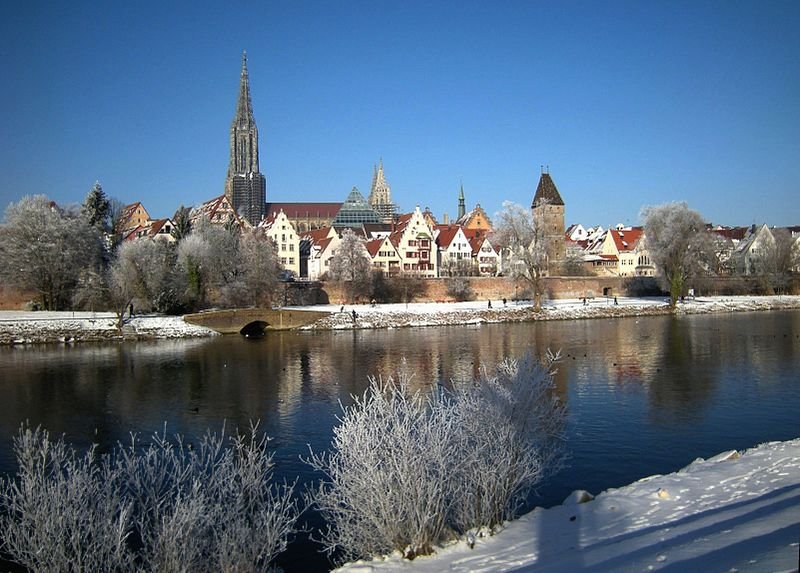 Ulm in winter
Ulm in winterSource: https://commons.wikimedia.org/wiki/File:Ulm_-_Winterliche_Ulmer_Stadtkulisse.jpg
Author: Franzfoto

Ulm is a picturesque town on the River Danube in Baden-Württemberg, Germany. It covers 118.69 sq km (45.83 sq mi) and has a population of 122,000 (2011 estimate). Ulm's call to fame includes being the birthplace of Albert Einstein as well as having the tallest church steeple in the world.
Ulm is located at an altitude of 479 m (1,571 ft), at the point where the Blau river and Iller river join the Danube. Forested hills embrace the city on three sides while the Danube flows through the south. Ulm comprises 18 neighbourhoods, all except four are located on the left (north) bank of the Danube.
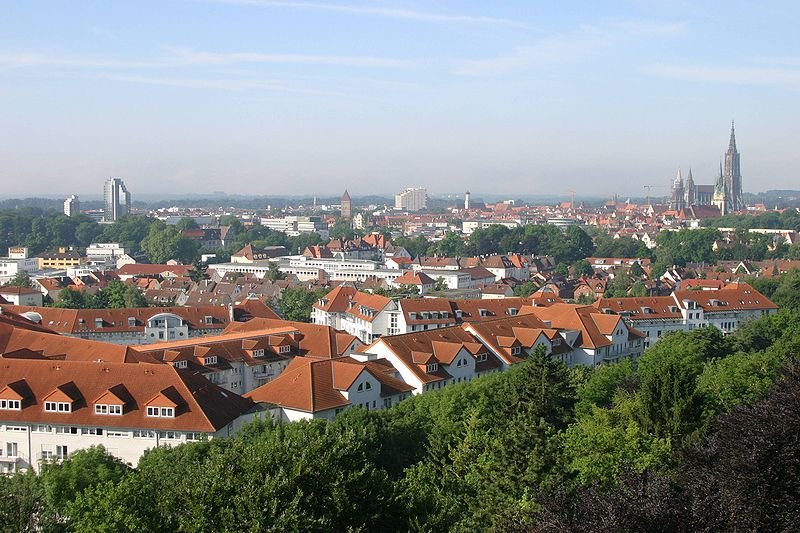 Ulm, Germany
Ulm, GermanySource: https://commons.wikimedia.org/wiki/File:Ulm_vom_sprollheim_aus.jpg
Author: Ingo Stoeldt

Despite its old-world setting, Ulm has established itself in cutting edge industries from electronics to pharmaceuticals. It is also home to the University of Ulm, regarded as one of the best research universities in Germany specializing in biomedicine, the sciences and engineering.
The history of human habitation in the Ulm area goes back to the early Neolithic period. Evidence of settlements dating from 5,000 BC has been uncovered in Eggingen and Lehr, today districts of Ulm. The history of modern Ulm goes back to AD 854, when it was first mentioned. Ulm was declared an Imperial City, by Friedrich Barbarossa, the Emperor of the Holy Roman Empire, in 1181.
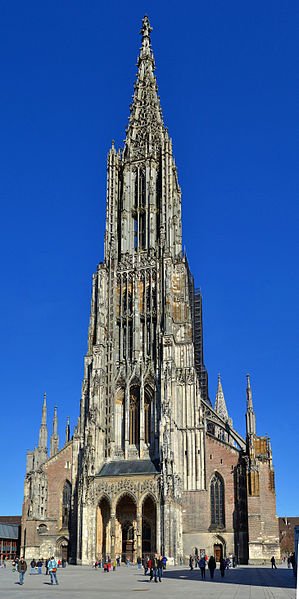 Ulm Cathedral
Ulm CathedralSource: https://commons.wikimedia.org/wiki/File:Ulmer_Muenster_Westseite.jpg
Author: ghesse

From a stopover point for medieval kings, Ulm grew into an important trade city. In 1377, construction of the Ulm Minster began. It was financed by the townspeople rather than the church.
the 15th and 16th centuries were prosperous times for Ulm, benefiting from its location at a strategic crossroad of medieval trade routes. During this period it erected many of its important buildings. In 1530 Ulm converted to the Protestant faith.
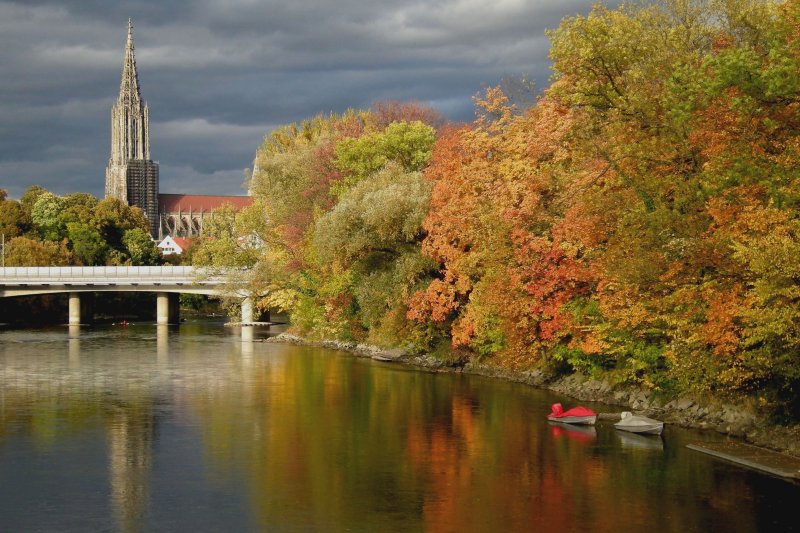 Autumn on the Danube in Ulm
Autumn on the Danube in UlmSource: https://commons.wikimedia.org/wiki/File:Herbstliches_Donauufer,_M%C3%BCnster_und_Eisenbahnbr%C3%BCcke.JPG
Author: Franzfoto

The Thirty Years' War (1618-48) ushered a period of decline for Ulm. Its position as a trading city was further eroded by the discovery of the New World, which created new trade routes. In the 18th century it was alternately conquered and ruled by French and Bavarian soldiers, and following the French Revolution, occupied alternately by French and Austrian forces.
World War II bombing destroyed 80% of the medieval part of Ulm. After the war, the city was quickly rebuilt in a simple style. As a result, much of the city now has modern architecture.
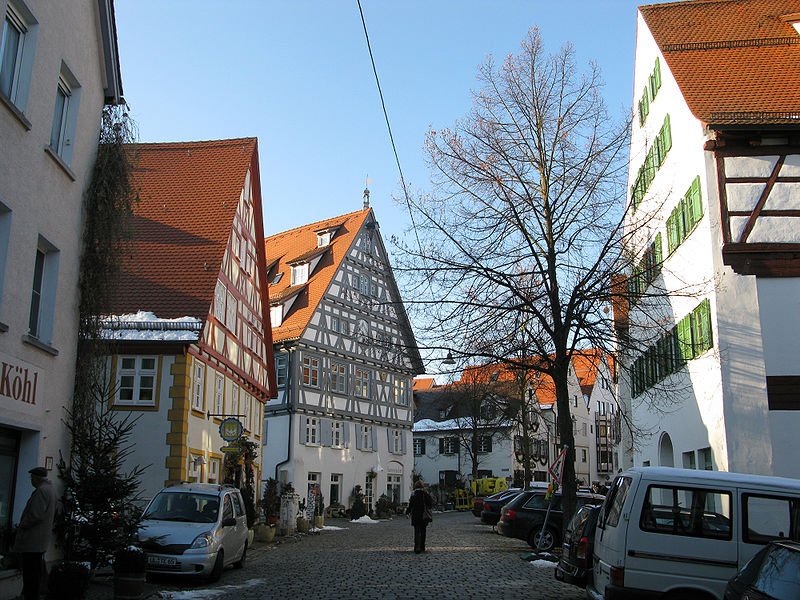 Fischerviertel in Ulm
Fischerviertel in UlmSource: https://commons.wikimedia.org/wiki/File:Fischerviertel_Fischergasse_Ulm.jpg
Author: Schlaier

Visiting Ulm, Germany
There are trains to Ulm from Stuttgart (an hour away) and Munich (two hours away).Exploring Ulm
The Old Town is small enough for you to explore on foot.Places of Interest in Ulm, Germany
- Fishermen's Quarter (Fischerviertel)
- Museum of Bread Culture (Museum der Brotkultur)
- Ulm Cathedral (Ulmer Münster)
- Ulmer Museum
 Latest updates on Penang Travel Tips
Latest updates on Penang Travel Tips

Copyright © 2003-2025 Timothy Tye. All Rights Reserved.

 Go Back
Go Back